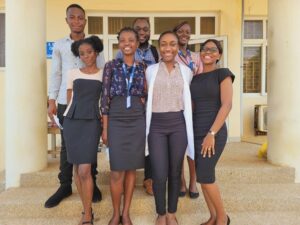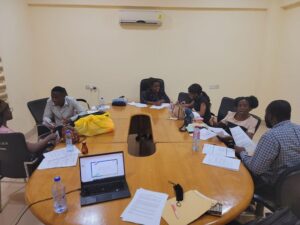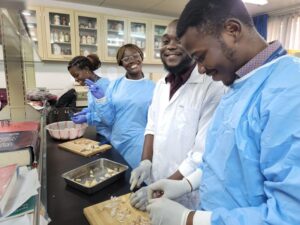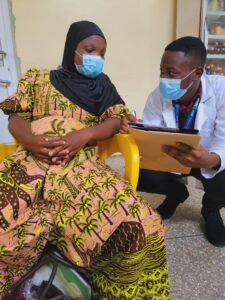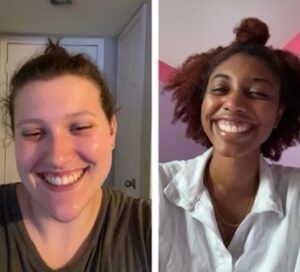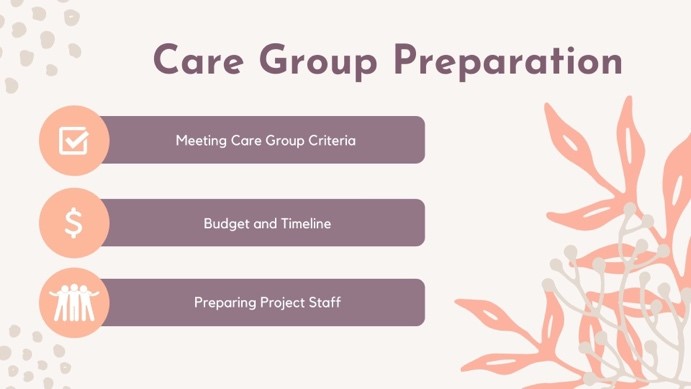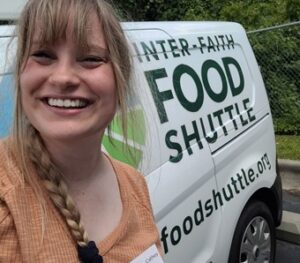
A little bit about me
My name is Sara Cathey, and I am currently working on my Master of Public Health degree in Global Health at the University of North Carolina at Chapel Hill. Before starting at UNC, I earned my Bachelor of Science degree in Nutrition from Texas A&M University, where I was first introduced to global and local food systems, food security, and food justice. Through my previous job developing nutrition programs with the Texas A&M AgriLife Extension Service Food and Nutrition Unit, to performing food security research with the Texas A&M Sociology Department, to leading my student organization and on-campus farm, Howdy Farm, I gained a robust understanding of local food systems and what it looks like to actively translate public health suggestions into person-centered, attainable solutions. As a student at UNC, I have continued my work within the field of food security, with class projects set at the global and local level, and now with the Inter-Faith Food Shuttle in Raleigh, North Carolina as a Community Health Education Intern. For my Summer 2022 practicum, I am excited to continue applying my background within the Food Shuttle’s multifaceted context of food recovery and provision, nutrition and agriculture education, and service to and by our community.
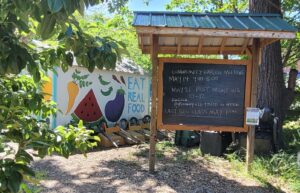
What is the Inter-Faith Food Shuttle?
The Inter-Faith Food Shuttle, first established in 1989 by Jill Staton Bullard and Maxine Soloman, seeks to “feed our neighbors, teach self-sufficiency, grow healthy foods, and cultivate innovative approaches to end hunger.” As an entity of the Feeding America National Network of Food Banks, we serve neighbors in the following seven North Carolina counties: Wake, Durham, Johnston, Orange, Chatham, Nash, and Edgecombe. To reduce the impact of hunger and food insecurity, we reach our neighbors with food, job skills, and education at all life stages through programs like:
- Grocery Bags for Seniors
- FAERS: Food Access and Education for Rural Seniors Living with Type 2 Diabetes
- BackPack Buddies and school pantries for children
- Cooking Matters nutrition education and cooking classes,
- Growing School Gardens and Seeds to Supper agriculture education programs for children and adults, and
- Community Health Education (CHE) Academy webinars.
The Food Shuttle is based in Raleigh at the Malone Center, where, among many other operations, recovered and donated food is sorted and packaged for distribution. The Food Shuttle also has several satellite locations to expand our reach to our neighbors— in Raleigh, we have the Camden Street Learning Garden and the 14-acre Food Shuttle Farm & Farm Stand; and in Durham we have the Geer Street Learning Garden. Likewise, the Food Shuttle also has a mobile food truck called The Spinning Plate which aids in food distribution in our service counties. On top of our various locations, Cooking Matters classes and agriculture education programs take place at elementary schools and community partner locations.
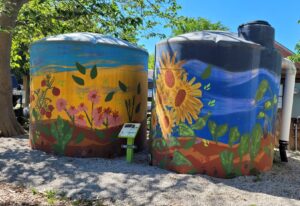
What am I up to?
During the short time I have been with the Food Shuttle, I have worked on numerous projects, including my practicum products. I am currently developing a 3-part webinar series about nutrition during pregnancy while experiencing food insecurity for the CHE Academy. Aligning with the Food Shuttle’s goal of alleviating hunger and equipping residents with limited resources to be self-sufficient, this education series seeks to reduce health inequities among pregnancy-capable persons experiencing food insecurity by increasing knowledge, self-efficacy, skills, and awareness of resources pertaining to increased nutrition and food access during and after pregnancy. On a second and separate project, I will perform a literature review to summarize and assess current literature on social advocacy education frameworks surrounding food sovereignty, food justice, organizing skills, and local policy education. Once the literature review is complete, I will design a logic model to reflect the frameworks that currently exist, barriers in previous programs, what resources are needed, and potential outputs and outcomes for a 14-week social advocacy fellowship. This information will be used by the Community Health Education team to develop the fellowship, which will equip neighbors with the knowledge and skills to positively influence their local food system.
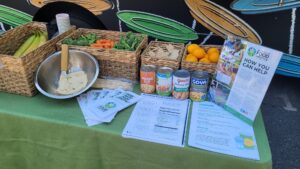
On top of my intended practicum products, during my first three weeks, I have accomplished quite a bit. To start, I wrote a teleconference script for the FAERS program about managing diabetes during disasters. I will lead this teleconference in June, which is the start of hurricane season. With this, I have developed several interactive documents that will be sent out with food packages to ensure seniors have the tools and time to prepare the diabetes supplies and food they need in an emergency. I have also led nutrition education outreach at a health fair in downtown Raleigh in collaboration with the First Baptist Church Wilmington. There, we taught individuals about sodium and food labels, while letting them taste test two types of hummus with various vegetables and bread. Moreover, on Wednesdays, I have an Ag Education rotation, where I aid in gardening lessons and food demonstrations at alternating elementary schools in Raleigh and Durham. I have also gone on food recovery routes and led volunteers in food packaging. Further into my internship, I will teach a 4-week Cooking Matters camp to kids in Chapel Hill, and, overall, develop a fuller perspective of the function of the Inter-Faith Food Shuttle in our local community.
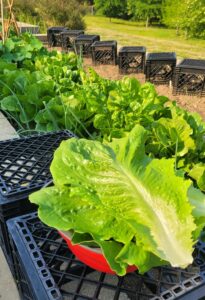
What do I hope to gain from my practicum?
With my practicum, I hope to gain an active, system-wide knowledge of the state of food security in North Carolina and efforts to improve it. As I work on my designated products, it is my goal to create engaging, equitable content that provides realistic, consumer-level solutions while challenging the status quo within nutrition education which often centers affluence and whiteness. To do this I plan to integrate concepts I have learned throughout my work experience, my time at UNC, and what I learn along the way from staff members and neighbors of the Food Shuttle.
-Sara C.

